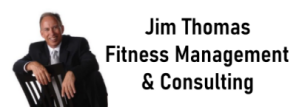Introduction
In the fitness industry, success isn’t just built on passion for health and wellness—it’s built on mastering the business side of fitness. Many independent gym owners and boutique studio operators launch with energy and heart but find themselves stuck financially months or years later.
The difference? It often comes down to money habits.
While both successful and struggling gym entrepreneurs may work hard, the most profitable and resilient owners handle their money differently. In this article, we’ll break down the five money habits that separate thriving gym owners from those who constantly feel behind, stressed, or on the brink of failure.
Master these habits, and you’ll not only survive—you’ll thrive.
1. They Prioritize Cash Flow
Successful gym entrepreneurs understand that cash flow is king.
They don’t just look at revenue; they look at when money actually hits their account and when it needs to go out. Cash flow mismanagement is one of the top reasons gyms fail—not lack of passion, not lack of members.
What Successful Owners Do:
-
Track inflows (member dues, retail sales, personal training sessions) and outflows (rent, payroll, marketing expenses) in real-time.
-
Plan for slower months and ensure they have enough cash reserves to weather seasonal dips.
-
Use cash flow forecasting tools to predict shortages early and make adjustments before there’s a crisis.
-
Prioritize collections—actively following up on failed member payments immediately rather than letting them pile up.
Struggling owners, on the other hand, often focus on “sales” without tracking when money actually arrives or how quickly expenses burn it up.
Key Tip:
“Revenue is vanity. Profit is sanity. Cash flow is reality.”
2. They Pay Themselves First
Smart gym entrepreneurs treat themselves like a non-negotiable line item in the budget.
They understand that if they don’t compensate themselves fairly and consistently, they risk burnout, resentment, and ultimately walking away from the business they worked so hard to build.
What Successful Owners Do:
-
Set a realistic monthly salary for themselves—even if it’s modest to start.
-
Build their personal savings alongside the business savings.
-
View their salary as necessary to their gym’s long-term health—not as a “leftover” after paying everyone else.
Struggling owners often sacrifice their own pay endlessly to cover expenses, mistakenly thinking they’re being “selfless.” In reality, they are starving the most critical asset their business has: themselves.
Key Tip:
Pay yourself a sustainable salary and build your business around that requirement—not the other way around.
3. They Track Every Dollar and Review It Monthly
Successful gym entrepreneurs know where every dollar goes.
They don’t wait until tax season to “see how they did.” They have a monthly money meeting—either with themselves, a manager, or a bookkeeper—to review financial performance.
What Successful Owners Do:
-
Maintain clear and updated Profit and Loss (P&L) statements.
-
Break down income by category (memberships, personal training, supplements, apparel, etc.).
-
Identify hidden leaks, like unused software subscriptions, bloated marketing costs, or overtime wages.
-
Course-correct quickly when spending creeps up or margins get too thin.
Struggling owners often have a “general idea” of their numbers but don’t dig deep enough until they’re desperate or drowning.
Key Tip:
What gets measured gets managed. A $30 recurring waste may seem small—but multiply it by 12 months and 10 similar wastes and it’s a serious cash flow leak.
4. They Invest in Assets, Not Just Expenses
Thriving gym entrepreneurs don’t just spend money—they invest it.
They know the difference between an expense (something that costs money and depreciates) and an asset (something that generates income, loyalty, or long-term value).
What Successful Owners Do:
-
Invest in marketing systems that generate predictable leads, not just flashy ads.
-
Upgrade equipment with a clear ROI plan (e.g., adding new machines that allow higher-end memberships or PT packages).
-
Train staff properly, understanding that great employees are a revenue-driving asset.
-
Build member experiences (welcome kits, referral programs, milestone awards) that improve retention.
Struggling owners often spend reactively: upgrading décor without a plan to monetize it, or buying equipment based on emotion, not need or ROI.
Key Tip:
Always ask: “Will this investment drive member growth, retention, or revenue? If not, why am I buying it?”
5. They Are Patient and Persistent
True gym entrepreneurs think in years—not just months.
They understand that real financial strength is built over time, through consistent effort, smart money moves, and resilience through ups and downs.
What Successful Owners Do:
-
Stick to strategic financial plans, even when tempted by the next “shiny object.”
-
Accept that real profit takes time and steady work—not overnight miracles.
-
Stay focused on fundamentals: member experience, consistent follow-up, strong team culture, effective marketing.
-
View challenges (like slow months or unexpected expenses) as part of the journey—not reasons to quit.
Struggling owners often get impatient: chasing new business models every few months, switching marketing tactics constantly, or abandoning solid foundations for risky trends.
Key Tip:
Success in the gym business is less about “luck” and more about what you repeatedly do—over years.
Final Thoughts
The most successful gym entrepreneurs aren’t necessarily the ones with the fanciest facilities, the biggest marketing budgets, or the most followers on social media.
They are the ones who master money management as ruthlessly and passionately as they master training programs and community engagement.
These five money habits—prioritizing cash flow, paying themselves first, tracking and reviewing finances monthly, investing in assets, and practicing patience and persistence—aren’t just “good ideas.” They are non-negotiables if you want to build a business that supports your dreams instead of draining them.
You don’t have to be perfect.
You just have to be consistent.
Start building these habits today—and watch your gym business transform.
Need help building systems, improving your facility, or turning around your gym business? Contact Jim here.

Looking for Financing Options?
Take your gym business to the next level. Click here to explore tailored financing solutions, or contact us directly at 214-629-7223 or via email at jthomas@fmconsulting.net. Prefer to dive right in? mconsulting.net/Apply now or book an appointment for a personalized consultation.
Are you ready to sell your gym? Have a specific Gym Sales & Acquisitions question? Message me here and let’s chat! Or call/text at 214-629-7223.
The Best Gym Billing Software. Choosing the Right Gym Software Company: Key Elements for Independent Gym Owners and Entrepreneurs. Click here for more information.
Insurance Made Simple for Gym Owners & Personal Trainers
Protect your business and your future. Discover custom insurance solutions here.
Custom Apparel Without the Hassle
Get premium custom apparel for your gym with no inventory required. Click here to get started.
Is Your Gym in Need of a Boost?
Whether you’re facing declining sales, need a fresh marketing strategy, require a complete business turnaround or ready to start a new gym, we’re here to help. With over 25 years of industry expertise, we offer a free initial consultation to explore solutions tailored to your unique challenges. Don’t wait—contact Jim Thomas at 214-629-7223, or gain immediate insights from our YouTube channel. Connect with us on LinkedIn. EMAIL NEWSLETTER. Join for FREE.
Meet Jim Thomas
Jim Thomas is the Founder and President of Fitness Management USA, Inc., a premier management consulting, turnaround, financing, and brokerage firm specializing in the leisure services industry. With over 25 years of hands-on experience owning, operating, and managing fitness facilities of all sizes, Jim is an outsourced CEO, turnaround expert, and author who delivers actionable strategies that drive results. Whether it’s improving gym sales, fostering teamwork, or refining marketing approaches, Jim has the expertise to help your business thrive. Learn more by visiting his website or YouTube channel.






